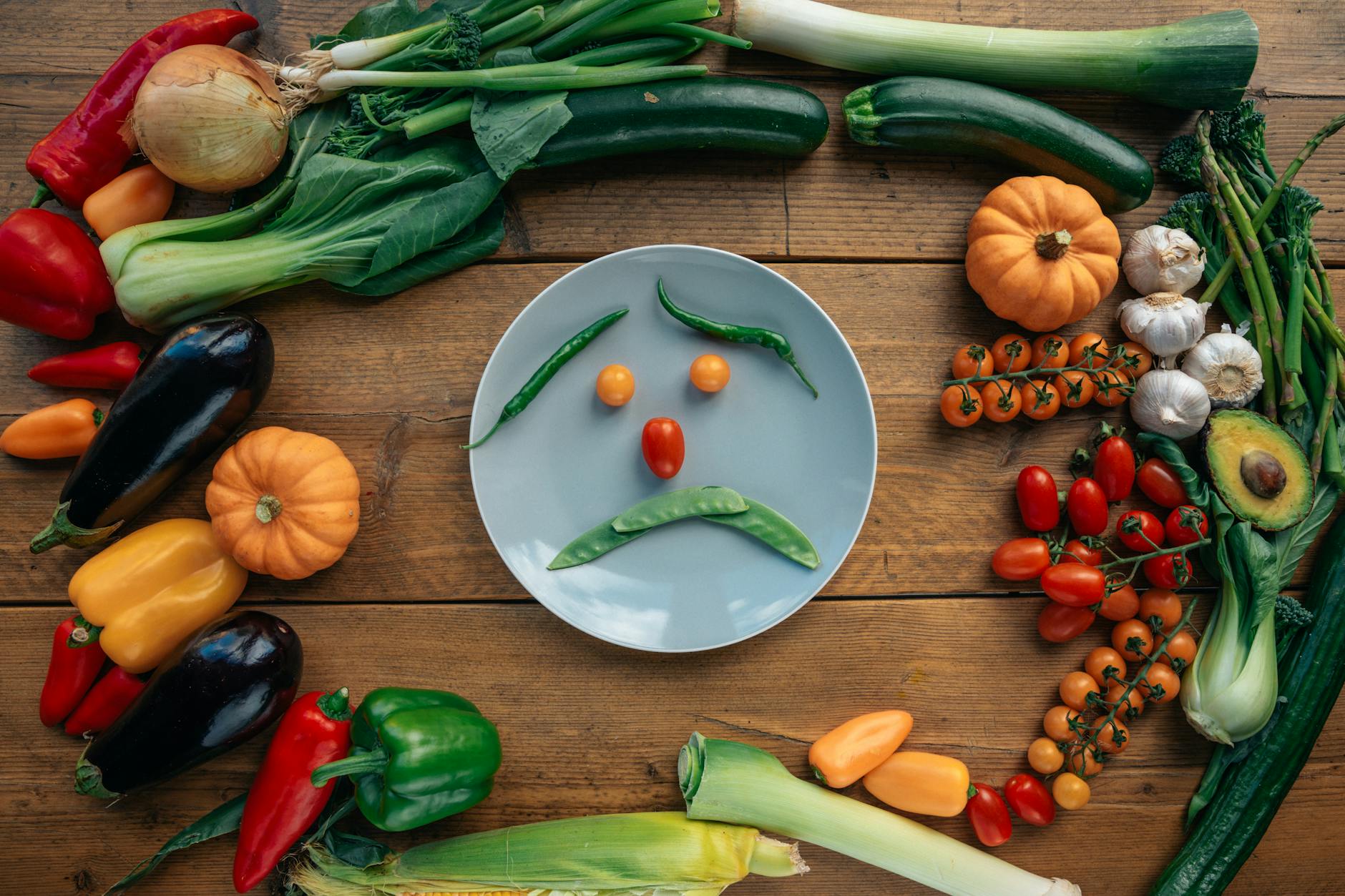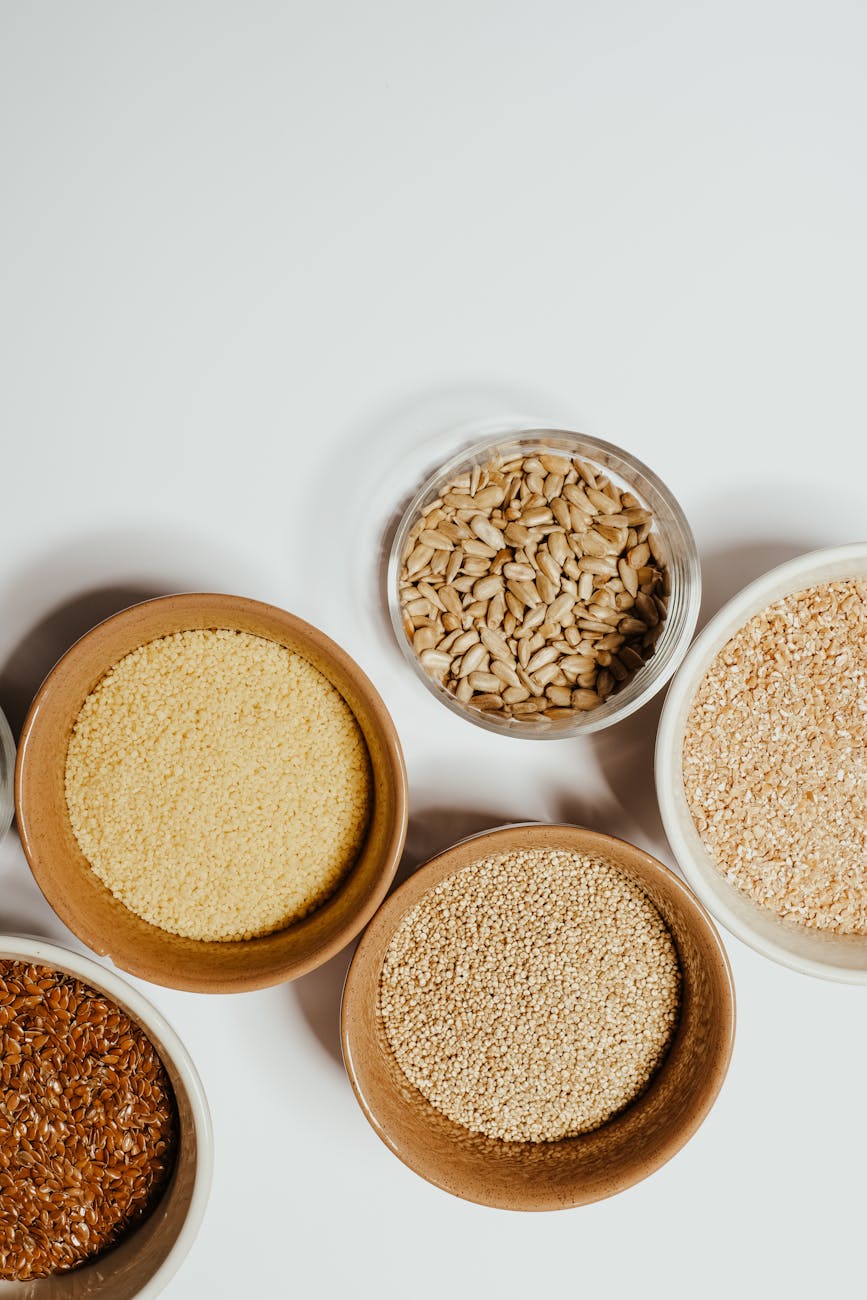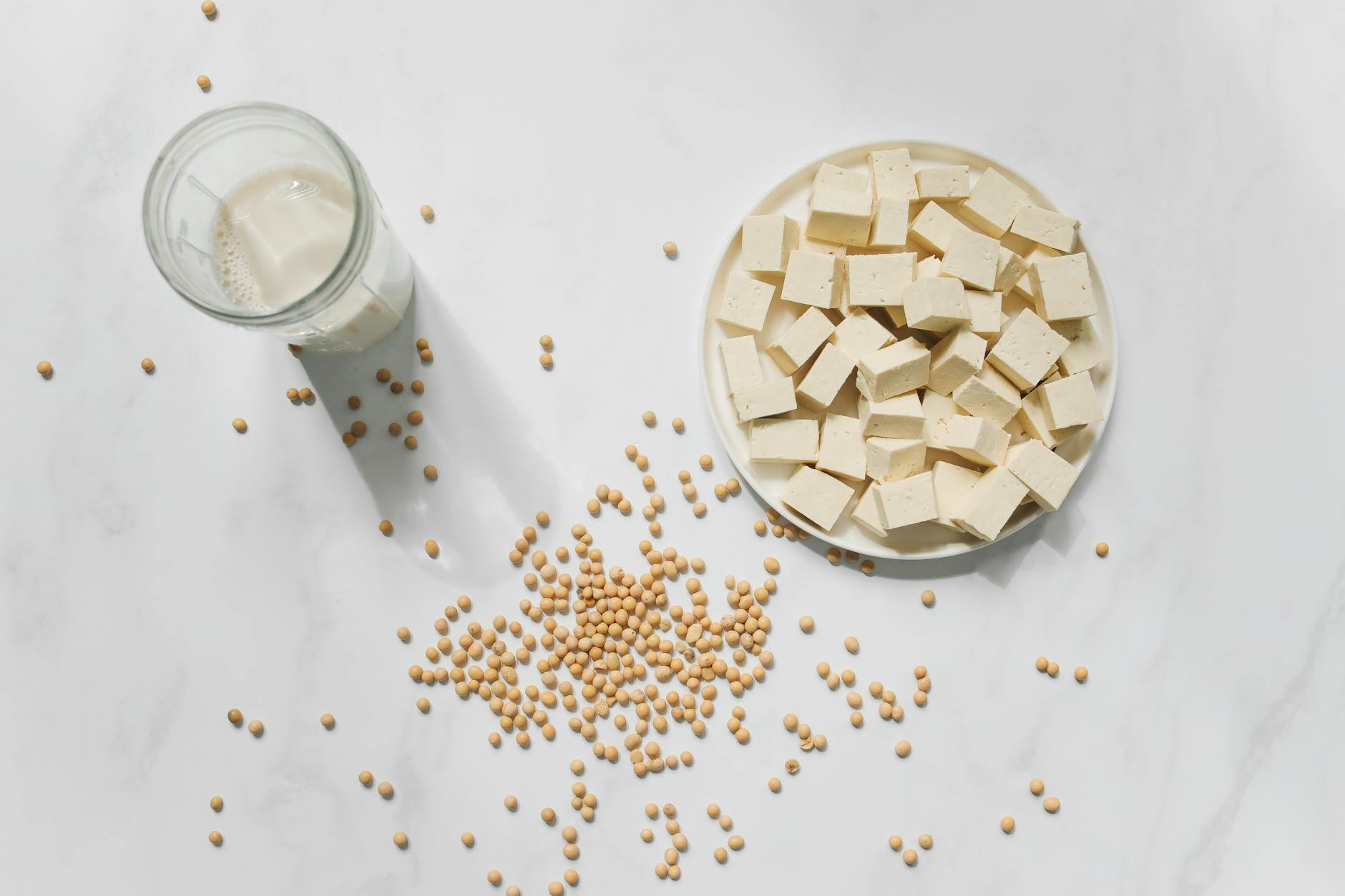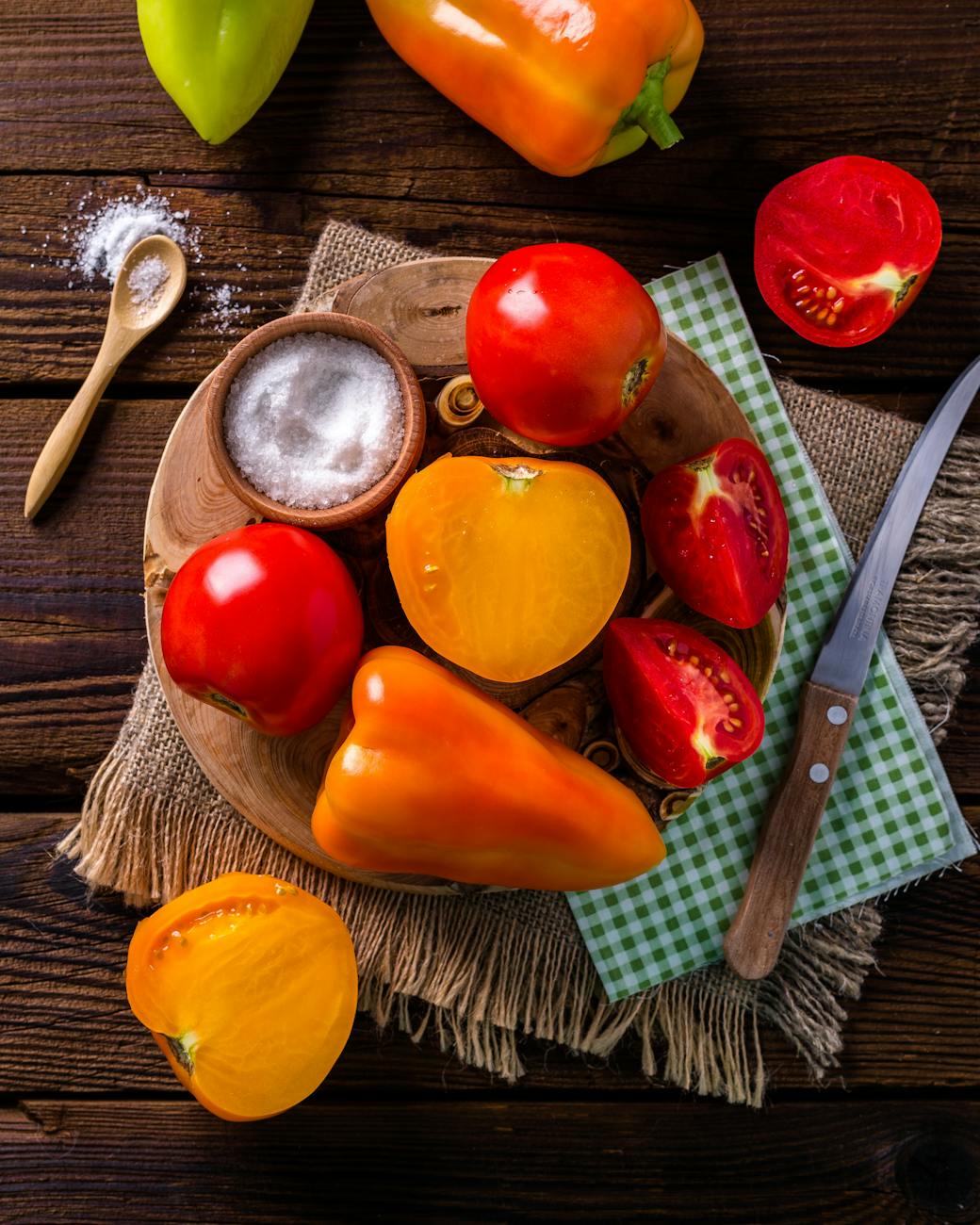When you’re trying to lower inflammation, it’s not just about adding the “good” foods. It’s about cutting the worst offenders first.
You can eat kale, salmon, and blueberries all day long, but if you’re still flooding your body with sugar, fried oils, or refined grains, you’re not giving your body a fighting chance.
The problem? It’s not always obvious which foods are the culprits. Some are clear, others depend on your body, and a few are downright controversial. Let’s walk through them together so you know exactly where to start.
👉 Want the done-for-you food list? Grab my free Anti-Inflammatory Quick-Start Guide. It lays out the foods to eat, avoid, and swap –> so you can see results faster.

What is chronic inflammation?
Think of inflammation like a fire alarm. Short-term, it’s helpful: your immune system kicks in to fight infection or heal an injury. But when that alarm never turns off (thanks to daily sugar hits, fried foods, and processed snacks) you’re left with chronic inflammation.
That’s when you start seeing:
- Plaque buildup in arteries (hello, heart disease + stroke risk)
- Worsening of autoimmune conditions
- Blood sugar spikes that feed insulin resistance
And it all ties back to what’s on your plate.
How foods cause inflammation
What I’ve determined after years of research is that there is no one-size-fits-all Anti-Inflammatory Diet.
Yes, some foods are universally inflammatory, but others depend on sensitivities, medical conditions, or even how they’re processed.
I like to break them into three buckets:
- Known Inflammatory Foods (backed by science)
- Your Personal Allergies or Intolerances (unique to you)
- Controversial Foods (may or may not cause inflammation depending on your body)
Let’s unpack each.
KNOWN inflammatory foods
These are the foods that the overwhelming majority of scientific studies, trials, and reviews have determined to be inflammatory to the body. If you only do one thing, cut out this list first:

Sugar
Sugar is one of the most inflammatory foods, and I listed it first because there’s a pretty large population of people (especially those trying to get on an Anti-Inflammation Diet) that are hooked on sugar and refined carbohydrates and feel completely stuck and hopeless.
Why sugar is bad
First and foremost, the majority of sugars available at the grocery store and in processed foods is highly refined. Each different form (especially high fructose corn syrup) is dangerous in its own right. Sugar causes a blood sugar spike and then crash, which has been shown to damage our metabolism, leading to weight gain and chronic disease with repeated use. This can also lead to chronic inflammation, cancers, obesity, chronic kidney disease and fatty liver disease.
Hyperglycemia (high blood sugar) has been shown to induce and increase the inflammatory response. What that means is that if you have regular excessive sugar intake, you have a constant rollercoaster of hyperglycemia and then subsequent blood sugar crashes all day long.
Natural Sugars vs Added Sugar
Many people who start an Anti-Inflammation Diet want to know what the difference is between ‘sugar’ and ‘added sugar’.
Added sugar (on a food label) indicates the amount of additional sugar that was added into the packaged food. When you have a food that has natural ingredients that inherently have carbohydrates then it will show ‘sugars’ on the label. Food companies must now distinguish between which of those sugars are natural sugars in the product and which ones have been added.
Be aware that even natural sugars can be inflammatory foods even if they’re in fruits.
Also be wary of natural sugars from maple syrup, honey, and agave. They’re still sugar.
Most common places to find sugar
Honestly anything that’s processed or packed these days will most likely have sugar in it. Obvious foods are breakfast items, snacks, and desserts. Lately several natural food companies have been introducing snack and breakfast bars with minimal ingredients that are promising.
Hidden sources of sugar
Where sugars get overlooked is 2 different places:
- Disguised sugars: This is when they’re listed as the 50-something and growing different variations of sugar on the food label.
- Not-so-obvious foods: This is where sugar is getting added into foods that you’d never expect (like bacon, spaghetti sauce, BBQ sauce, etc).
Artificial Sweeteners
Artificial sweeteners have been under fire a lot the last few years, and with good reason. Aside from anecdotal accounts, studies have shown that the compounds in artificial sweeteners wreck gut health and induce pro-inflammatory changes, which is vital to a diet that will reduce inflammation.
**These are NOT the same as natural zero-calorie sweeteners.
Examples of artificial sweeteners are:
- saccharin (brand name Sweet N Low- the pink packet)
- aspartame (brand name Nutrasweet- the blue packet)
- sucralose (brand name Splenda- the yellow packet)
📄Read all about the Best Sugar Substitutes for Inflammation HERE.

Trans fats
Artificial trans fats are highly inflammatory and should be avoided at all costs. They’ve been connected with hardening of the arteries and heart disease. These are fats that have been chemically altered to stay fresh for longer and are banned in many countries.
Sources of trans fats
Most trans fats are found in bakery-type items but can really be in anything processed.
How to recognize trans fats
On food labels, you’ll know if trans fats are present because the label will use the word ‘hydrogenated’ or ‘partially hydrogenated’ or ‘partially hydrogenated oils’ (something to that effect).
One thing to look out for is labeling on the package that says, “0 grams trans fats per serving”. What that usually means is that they’ve made the serving size on the label so small that they’re using a labeling loophole to be able to state that there are no trans fats when in fact there are. Read the ingredients list always.
Refined grains
Refined carbohydrates in the form of grain flours are inflammatory foods because of the effect on blood sugar levels. In fact, they can raise glycemic levels as much as a candy bar. They also have all the nutrition stripped away, leaving very little in its place except a substance that will put you on the same rollercoaster as sugars.
Where to find refined carbs
Refined grains are in bread, bakery items, cereals, and even things you wouldn’t think about like breaded (and especially breaded and fried) foods.

Alcohol
Alcohol is an interesting inflammatory food because studies have shown that moderate consumption can have a more positive effect depending on the source. Usually this is limited to red wine.
But alcoholic drinks can have a two-fold punch. If the drink is a cocktail full of sugar, you’re getting a double dose of inflammatory foods in a single drink.
CRP is an inflammation-associated marker showing elevated inflammatory levels among people who drink more than safe amounts.

Processed meats
Processed meat refers to meats that have been mechanically ‘put together’. Processed meat consumption has been linked to chronic inflammation and disease, including cancer.
These include deli meats, beef jerky sticks, and other processed meats that you’d expect to find on a charcuterie board.
Vegetable oils and seed oils
These types of oils are highly inflammatory because they’re super refined, and then are usually oxidized by the time they make it into processed foods, or get reheated many times over which also causes oxidation. Oxidation induces the inflammatory response.
Vegetable oils and seed oils to avoid include corn oil, vegetable oil, peanut oil, cottonseed oil, and canola oil that isn’t organic and expeller pressed.

Saturated fats
Although most data until the last few years has indicated saturated fats trigger inflammation, all the studies done (apart from recent ones) never differentiated between sources of the animal saturated fats.
Animal based saturated fats
Saturated fats from animals have different omega 3:6 ratios depending on how they were raised and fed, which can offset the inflammatory response. What this means is that occasional consumption of saturated fat may be ok when the source and quality is taken into account.
Sources of animal-based saturated fat includes meat and dairy products.
Plant based saturated fats
Saturated fat from plant sources includes palm oil and coconut oil. Again- the quality of these is what matters as refined sources have been shown to have inflammatory compounds. (Read more about these below) 👇.
Foods that trigger you personally
These fall into two different categories really: Foods you already know you’re allergic (or sensitive) to, and foods that science has shown you should avoid if you have certain conditions.

Allergies and intolerances
Foods that you know you’re allergic to absolutely promote inflammation in the body. The same goes for foods you have an intolerance or sensitivity to because they induce inflammatory markers when ingested, and you have a subsequent reaction to the food.
If you know you have an allergy (say, peanuts) or an intolerance (like lactose), those foods create an inflammatory response every time you eat them. Even if they’re “healthy” for someone else.
Not sure? An elimination diet or allergy test can help you pinpoint what’s making you feel inflamed, bloated, or foggy.
👉 Action step: Keep a food + symptom journal for a week. If you notice repeat flare-ups (joint pain, rashes, bloating) after certain foods, flag them for elimination.
Foods to avoid based on condition
Depending on your given condition that you’re trying to manage, several have studies backing up avoiding certain foods that cause inflammation. These would include:
- metabolic conditions like type 2 diabetes, PCOS, and insulin resistance
- GI conditions like IBS and IBD
- respiratory conditions like asthma or COPD
- rheumatoid arthritis or other inflammatory arthritis
- autoimmune conditions/disease (like celiac disease)
- endocrine/hormonal conditions like thyroid or adrenal conditions
That being said, there are specialty subsets of foods that could cause inflammation for some of these conditions. These include lectins, FODMAPS, nightshades, and fructans.
Controversial foods that could cause inflammation
These are the foods where science has studies showing results that are inconclusive.
This could be because the study size was very small, it was done on animals instead of humans, funding of the study creating bias on the outcome, or the data collection methods relied on study participants remembering things versus having a more concrete data collection method (for example).

Whole grains
With the slurry of new dietary styles comes criticism for different food groups for one reason or another. With low carb diets and keto picking up the pace in the last decade or so, this means carbohydrates are getting a lot of flack. Especially whole grains.
Science shows that when in their whole or cracked forms, whole grains are full of nutrients and needed fiber (because gut health is crucial on an Anti-Inflammatory Dietary Style), but that doesn’t mean that any given grain won’t disagree with you.
📄Read more about Whole Grains HERE
Legumes
Also in line with new dietary styles, especially Paleo or the caveman diet, legumes have also come under fire. Again, studies show that these are full of nutrients, protein, and fiber. But legumes can absolutely disagree with some people.

Soy
Soy has come under fire because of the connection to hormones, specifically- estrogen. Soy has been shown to have effects on hormones, but the changes have been fairly small. Again, studies on this go back and forth in that aspect, but in regard to inflammation specifically, the science shows that soy can fight inflammation.
The variable that could make it promote inflammation is for it to NOT be organic (because it is heavily sprayed with glyphosate if not organic), and when it’s in oil form because it’s most likely to also not be organic, and also is heavily refined and oxidated.
Dairy
Historically, studies on dairy products have been heavily criticized because of the amount of lobbying done by the dairy association in the last few decades. Some studies show no change in inflammation when consuming dairy, and others show inflammatory markers increase, especially with GI conditions like IBS.
So here’s the breakdown: milk has lactose (which is a sugar) and should be avoided.
But other dairy foods like plain, unsweetened yogurt have been shown to be beneficial in boosting gut health, and also have a few studies showing anti-inflammatory effects. Especially when they come from organic grass-fed sources as the dairy products from those animals have the same balanced omega 3:6 ratios as red meat that comes from organic grass-fed sources.
📄 Read more about Dairy HERE
Red meat
This was covered a bit under saturated fats, but red meat has been shown in the past to trigger and affect inflammatory markers. The problem with these studies was that the quality and source of the meat wasn’t considered.
Recent studies have shown that there is a difference based on those factors. When the sources are organic grass-fed, there was an increase in anti-oxidant and anti-inflammatory activity.
📄Read more about Red Meat HERE

Nightshades
Nightshades have been villainized heavily because of claims that they create an inflammatory response. Studies have shown this isn’t actually the case (except in some GI conditions), and in fact, the Arthritis Foundation actually recommends including them in your diet because of their high nutritional value.
📄Read more about Nightshades HERE
Saturated fats
Again, saturated fats now have more recent studies backing them up if they come from organic, grass-fed, pastured sources. This is because it balances the omega 3:6 ratios, which controls inflammatory markers.
📄Read more about Saturated Fats HERE
How to know which foods cause your inflammation
Really the only way to know for sure if these foods promote inflammation in your body is to do an elimination diet.
This is when you eliminate certain food groups (listed above) all at once, or even if varying chunks, then reintroduce them back one at a time, slowly, to see how you react.
It takes intention, but it’s the most reliable way to build an eating plan that’s personal, sustainable, and actually works.

All in all, you should absolutely eliminate the obvious offenders (the foods shown to induce inflammation and your personal food allergies and intolerances).
But the remainder are up to you. The foods listed in the last category of controversial foods have been shown to have a ton of nutrients, but that’s not to say you won’t personally react to them.
Again, the bottom line recommendation is to adhere to the basic Mediterranean diet guidelines, do an elimination diet if you’re having symptoms still, and then create an eating plan from there.
And don’t worry — you don’t have to do this alone.
👉 Grab my free Anti-Inflammatory Quick-Start Guide 👇 and I’ll show you:
- The 10 foods to swap first
- A printable shopping list to make it simple
- My 4-step method to kickstart your anti-inflammatory lifestyle
You deserve a way of eating that helps you feel good every single day. 🌿
Discover My Unique 4-Pronged Approach to the Anti-Inflammatory Diet So You Can Get Started Immediately (Without Getting Overwhelmed or Cleaning Out Your Entire Pantry)

- Why a full-scale pantry clean out is NOT the best way to start your anti-inflammatory journey, and the steps you can take instead to make sure you’re fueling your body with foods that love you back
- The essential foods you MUST add into your diet if you want to nourish and heal your body naturally
- My anti-inflammatory shopping list so you can quickly fill your cart with the right foods (no googling in the produce aisle or wasting hours staring at ingredient lists)

